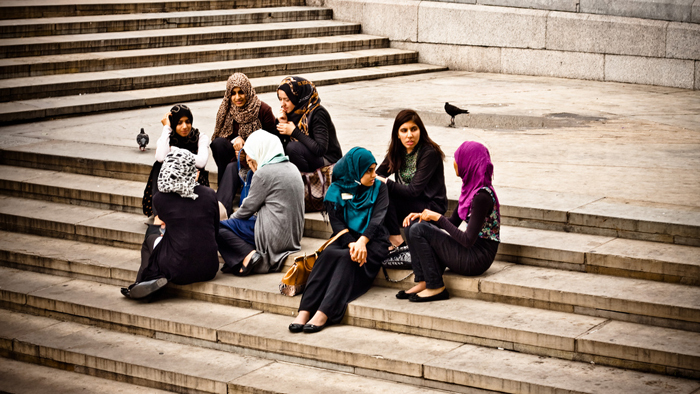
Question: As you know, melancholy is the disease of this age. Psychological clinics are full of sick persons whom melancholy has thrown out of the circle of life.
I have a melancholy, introvert father. He is forty years old but he seems to be seventy years old. This matter has troubled our family life. I am fifteen years old but I do not know the reasons that have made my father so. Does Islam have solutions that can be depended on to save such sick people? Would you please answer in details, because there are many people like me who wait for this answer?
The answer: Islam has solutions for everything. It has declared the cure of melancholy and its like and emphasized, before that, on prevention. Here, I summarize The answer’s in five points:
First, the traditions of the Prophet (S) and the infallible Imams (a.s.) have referred to “melancholy” as “grief” and “distress”. They have warned the Muslims of it by saying, ‘He, whose grief increases, his body becomes sick’, ‘Grief is half of senility’, and ‘Grief is the disease of mentality’.
Boredom, distemper, lack of appetite for food, physical and psychological weaknesses, insomnia, instability, absentmindedness, pessimism, fatigue, feeling of guilt, inactivity, not feeling joy in the beautiful scenes of nature or other material pleasures, neglecting one’s health, and paying no attention to life, which are qualities found in melancholy people, have been mentioned in the traditions with certain expressions.
Second, there is a close relationship between melancholy and the culture of the individual and that of the society. Some religious and social cultures lead to melancholy through their tragic literary works, sad music, and crying as it is widespread in the Eastern countries. As for the Western societies, the culture of disengagement from family connections leads one towards melancholy when he finds himself alone with no one to participate with him in his joys and sorrows. Therefore, we find that suicide rates are on an increase in the Western countries, which do not care for family connections, while in Japan, where family relations and connections are strong, the ratio of suicide is very low, whereas religious and rural societies are the least afflicted with melancholy and acts of suicide.
As for religious societies, it is so because religion prohibits suicide and considers it as a crime of murder, whose recompense is being in Hell forever. Moreover, religion satisfies man’s sentiments and his spiritual needs, which give him a power to adapt himself to changes and stimulates in him positive motives that resist melancholy.
Third, the reasons for melancholy must be understood. These reasons are not the same for all people. Each one is different from the other. For example, the reason for melancholy of someone may be the lack of love and sympathy and for another may be the accumulation of psychological pains, remorse after committing a sin, disappointment, the death of a lover, emigration and being away from one’s family and relatives, a great financial loss, or poverty and neediness.
Fourth, what is the successful cure for this disease?
Modern psychological clinics have depended, in curing this disease, on the tranquilizing tablets of Valium or other gladdening drugs, while some other clinics prefer electrical shocks. All these cures are rejected by the Islamic clinic, which depends on prevention initially and then on cure54.
For curing this disease, Islam prescribes the following:
1. Take a bath with cool water, and especially pour it over the head; Imam Ali (a.s.) says, ‘Whoever has grief that he is unable to identify, let him wash his head.55’
2. Wash the clothes and remove bad smells, which means cleanliness in general; Imam Ali (a.s.) says, ‘Washing one’s clothes takes away grief and sorrow.56’
3. Mention Allah a lot, especially by saying “there is no power save in Allah”; the Prophet (S) says, ‘saying “there is no power save in Allah” has a cure for ninety-nine illnesses, the least of which is grief.57’ Imam as-Sadiq (a.s.) says, ‘If grief increases, you should mention “there is no power save in Allah.58”’
4. Eat grapes, as mentioned in the traditions of the Prophet (S) and the infallible imams (a.s.)59.
Fifth, protection is the most important way to prevent melancholy and introversion. Islam has established constructive teachings to prevent any negative state that may destroy man’s comfort and happiness. Islam first establishes belief inside man and then strengthens that faith inside him to reach a degree where he becomes certain of the wisdom of Allah and becomes satisfied with the fate Allah has determined.
The Prophet (S) says, ‘Allah, with His wisdom and favor, has made comfort and joy in certainty and satisfaction, and made grief and sorrow in suspicion and dissatisfaction.60’
A real believer sees the causes of melancholy trivial especially when he recites this Qur’anic verse, (it may be that you dislike a thing while Allah has placed abundant good in it)61.
A real believer does not envy others because he knows that “envy eats faith as fire eats firewood”. Imam Ali (a.s.) says, ‘I have not seen an unjust one who is more similar to the wronged than one who envies: continuous panting, upset heart, and endless sorrow.62’ A real believer dose not look for the material pleasures of this life because he has read the Islamic concept about this worldly life as “it deceives, destroys, and passes away.63’
A real believer has to submit to the saying of Imam as-Sadiq (a.s.), ‘Loving the worldly life causes grief and sorrow, and abstaining from it causes comfort of the heart and the body.64’
A real believer does not pant after the lust that is in the back of his mind and refrains from pondering over it because he has read the warning of the Prophet (S), ‘A lust of a moment may bring a long sorrow’65.
Hence, a real believer protects himself lest he fall into melancholy. This is the vigilance of faith that leads to protection and safety from melancholy and its like.
Dear brother, you have to read this answer to your father and tell him:
1. Believe in Allah and work with the hope of arriving at the bliss of Paradise because this makes man patient with the difficulties of life!
2. Be active and do not be lazy!
3. Not committing a mistake is not a reason for great pride; rather, great pride lies in getting out of the mistake.
4. Dear father, stand on your feet to light your way and the way of others because an inverted candle does not light!
5. Have you pondered on flowers and smelt their fragrances? If there are no flowers in life, the scenes of beauty will be incomplete!
6. Happiness is a gift from Allah. Why do you not raise your hands towards the Heaven to receive this gift?
Finally, tell him frankly that worry, upset, fear and melancholy take him away from Allah; therefore, he has to do remembrance of Allah and be close to Him to be free from all those psychological diseases! Tell him: Come on! Forget the past and change your state and our state for the best by the assistance of Allah!












